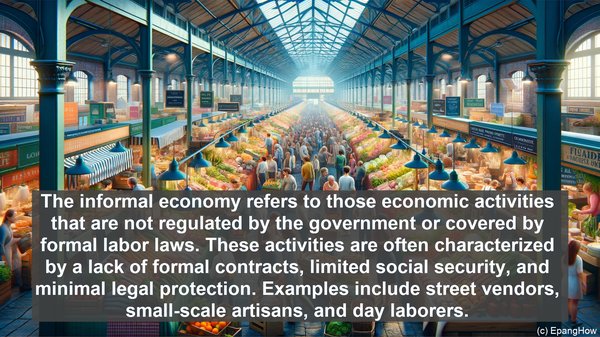Introduction: Unveiling the Hidden Economies
Hello everyone! Have you ever wondered about the economic activities that exist outside the conventional framework? Today, we’re exploring the informal economy and the underground economy, two realms that often go unnoticed but play a significant role in shaping our economic landscape.
Defining the Informal Economy
The informal economy refers to those economic activities that are not regulated by the government or covered by formal labor laws. These activities are often characterized by a lack of formal contracts, limited social security, and minimal legal protection. Examples include street vendors, small-scale artisans, and day laborers.
Unraveling the Underground Economy
On the other hand, the underground economy, also known as the shadow or black market, encompasses illicit activities that are intentionally hidden from the authorities. This includes activities like smuggling, drug trade, and unreported cash transactions. Unlike the informal economy, the underground economy operates in direct violation of legal frameworks.
Distinguishing Factors: Informal vs Underground
While both the informal and underground economies operate outside the formal sector, there are key distinctions. The informal economy, though unregulated, is not necessarily illegal. It often serves as a survival strategy for individuals who lack access to formal employment. The underground economy, on the other hand, is inherently illegal and thrives on activities that are prohibited by law.

Visibility and Impact
The informal economy, despite its unregulated nature, is often visible in our daily lives. From street food vendors to flea markets, its presence is tangible. In contrast, the underground economy operates in the shadows, hidden from public view. However, its impact can be far-reaching, with implications for tax evasion, economic stability, and even national security.

Policy and Governance Challenges
Effectively addressing the informal and underground economies poses significant challenges for policymakers. While the informal economy can be integrated into the formal sector through supportive policies, combating the underground economy requires a multi-faceted approach, including law enforcement, international cooperation, and addressing the root causes that drive its existence.
